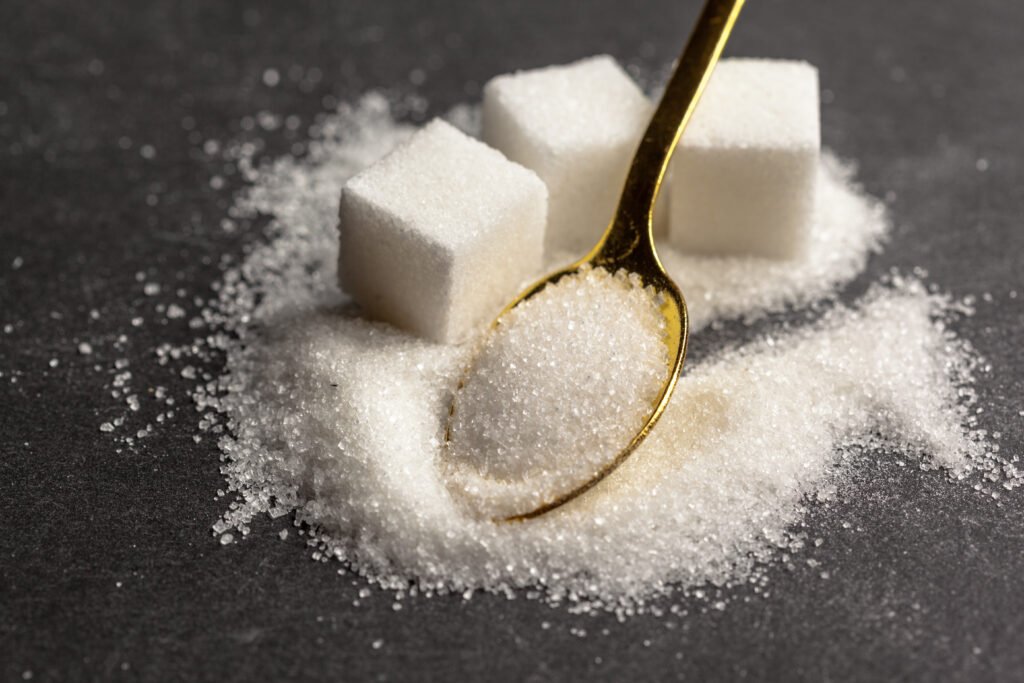The Sweet Truth: How Sugar Influences Your Brain
Sugar is made from sugar cane or sweet beets. Industrial refining processes remove vitamins, minerals, proteins, enzymes, and other beneficial nutrients from sugarcane juice to make sugar. As a result, too much sugar can cause serious health problems. Sugar can reduce our ability to think and remember. It can also cause some psychological problems. Today, we will learn how it affects our brain.
A 2007 study found that the amount of intoxication sugar can produce in our brain is stronger than the feeling of intoxication produced by cocaine. How? When we eat sugar, the glucose from it goes to our brain. Going there can affect the reward center of our brain. That is, our brain feels good or happy after eating sugar. When the brain is feeling good or happy, the brain will tell us, “I am feeling happy, now I want more happiness.” We’ll eat more sugar again later. Eventually, the brain will become tolerant to the amount of sugar we are eating. As a result, we need to consume more sugar to get the same amount of pleasure. The same is the case with drugs.
In this study, the rats were given cocaine and a liquid meal made from a lot of sweet saccharin. After some time, it was found that these rats were more dependent on the sweet food than they were on cocaine. It is found in 94% of mice.
You can also do this test yourself. This can be done if you eat white bread every day. Because white rice and white bread are high glycemic index foods. That is, after eating these foods, a large amount of glucose suddenly comes into our blood. And the same thing happens with glucose, and the same thing can happen with sugar.
If you don’t eat bread made of white flour one day, you will eat other food. In which glucose contains little or no glucose. You can eat meat, vegetables, and others. You will see that you are not satisfied. You feel a sense of dissatisfaction. What’s the reason? The reason is that you did not have glucose in your blood and the brain did not get the hope that you would give it a less amount of glucose. It signals to you that he is not satisfied. This is why it is often seen that we have eaten right but are not satisfied. This is due to negative signals from the brain.
Now let’s try to find out what else sugar can do to our brain
A 2016 study found that eating too much sugar can cause inflammation in the brain. It may be the part of the brain that holds our memories.
A 2017 study found that people who regularly drink sweetened beverages, such as carbonated beverages, and juice. In carbonated beverages, we are a little bit deceived because we do not feel the sweetness because of the carbon dioxide in it despite there being a lot of sugar, but in fact, it is much sweeter. However, the brain volume of those who eat this way is decreasing and their ability to retain memory is decreasing.
Excess sugar affects the hippocampus and other parts of the brain and regulates our overall mood. Our brain has a system called the dopamine system. The system can control our feelings and emotions. If there is a problem in this system, then there can be a sudden change in our emotions. For example, we are getting angry and upset. There can be many such problems. Sugar can affect the dopamine system.
Another study in 2017 found that the study was conducted on 23,000 + people. Those who ate too much sugar had 23% more mental disorders than those who ate less or no sugar at all. Brain-derived neurotrophic factor (BDNF) is a chemical in the brain that helps us form new memories. Consuming foods that are high in sugar can reduce the amount of BDNF.
Another study found that this decrease is related to Alzheimer’s or dementia disease. You may know about Alzheimer’s or dementia. In this disease, people forget everything. For example, if you do something now, you will forget tomorrow whether you are did it or not.
Consuming too much sugar in your diet, or drinking coffee with a lot of sugar, or drinking drinks with a lot of sugar, can reduce the amount of BDNF chemicals in your brain. BDNF helps in memory formation; new memory will not be created if BDNF is reduced. And if this BDNF decreases, then gradually it can go towards dementia or Alzheimer’s.
Sugar substitutes should be chosen to reduce the intense sugar craving. Avoid white sugar completely. Red sugar is less harmful than white sugar. A salad or fruit salad is a good choice. By eating dates, honey, jaggery, raisins, and xylitol also you can reduce the craving for sweets, which is also not so harmful. However, artificial sweeteners should not be consumed. In that case, you can eat natural sugar, such as stevia leaves, which will give the taste of sugar but is not as harmful as sugar. To stay healthy, you need to remove sugar from your diet gradually.

